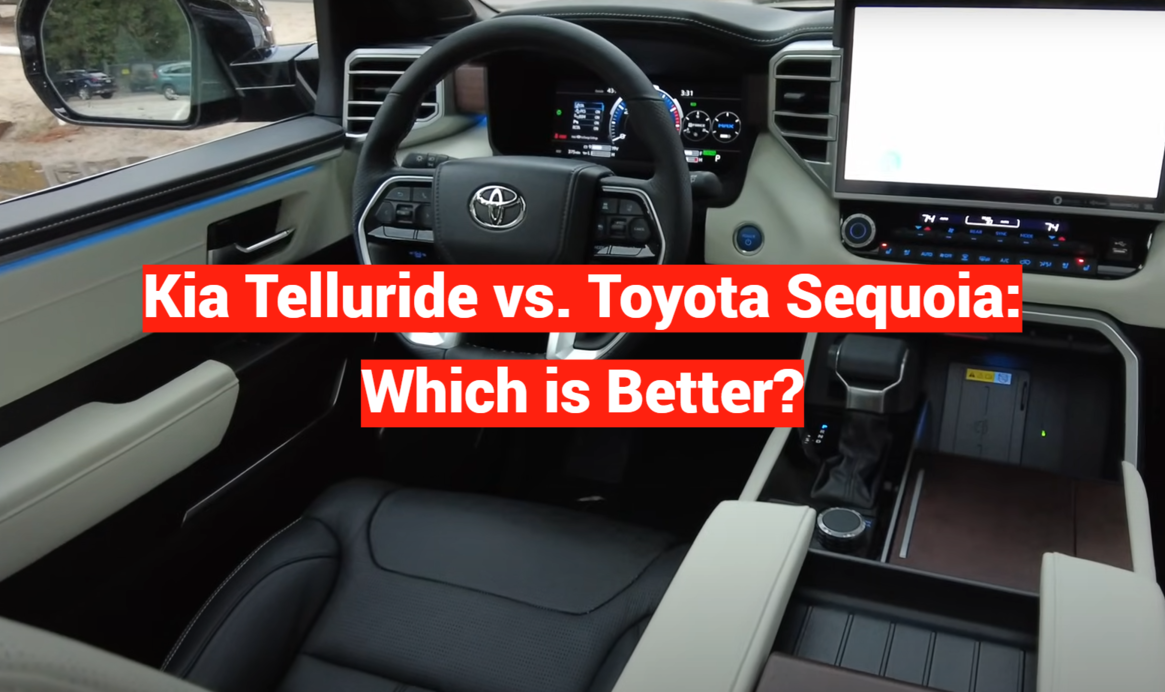Get ready for the ultimate SUV showdown! It’s time to buckle up and see who emerges victorious between two heavyweight contenders: the Kia Telluride and the Toyota Sequoia. These powerhouses of the road are on a collision course, and car enthusiasts around the world are eagerly awaiting the results. So, grab your popcorn and clear your schedule, because this battle of automotive titans is about to begin. Will the Kia Telluride reign supreme with its sleek design and cutting-edge features, or will the Toyota Sequoia prove its dominance with its reputation for reliability and brute strength? Dive deep into the world of SUVs and witness this epic showdown unfold.
What Is an SUV?
Before you dive into the showdown between two of the top SUVs on the market, let’s first define what an SUV actually is. SUV stands for “sports utility vehicle” and it refers to a type of vehicle that combines the features of a passenger car with those of an off-road vehicle. This means that SUVs are designed to handle both urban roads and rough terrain, making them a popular choice for families and outdoor enthusiasts alike.
SUVs, or sport utility vehicles, are known for their higher ground clearance, which allows them to easily navigate off-road terrain and handle challenging road conditions. In addition to their spacious interiors, they also offer more cargo space, making them ideal for hauling large families and carrying heavy loads. With their powerful engines, SUVs provide the performance needed for both urban and off-road adventures.
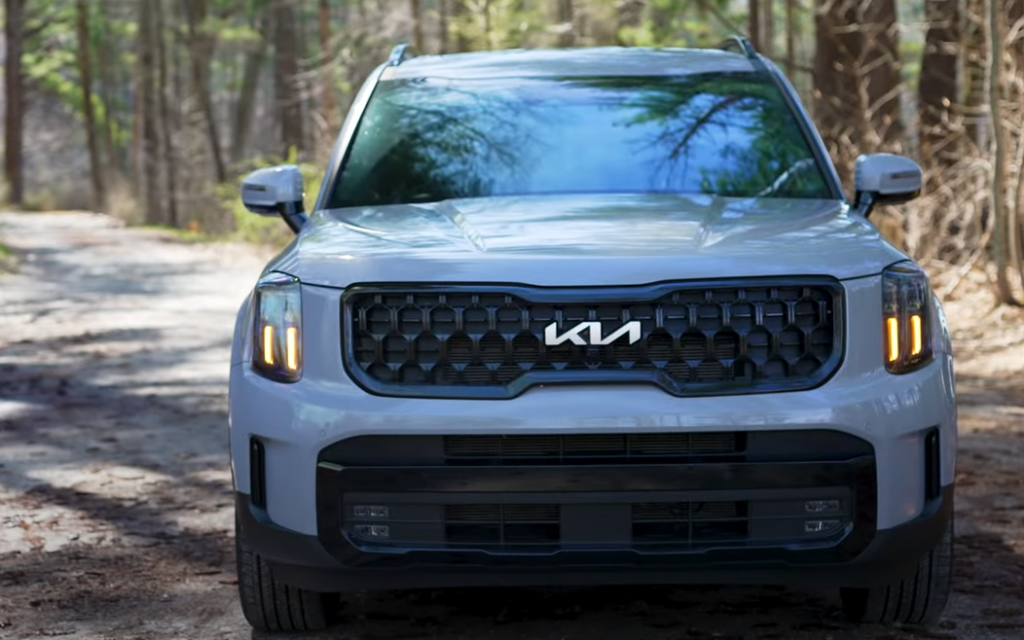
Over the years, SUVs have undergone a remarkable transformation, transitioning from purely utilitarian vehicles to sophisticated modes of transportation that seamlessly blend luxury features with cutting-edge technology. This evolution has significantly broadened their appeal, particularly among discerning drivers who seek a harmonious fusion of power and comfort in their driving experience [1].
Is a Crossover Different Than an SUV?
While SUVs and crossovers share many similarities, they are not exactly the same. Crossovers are smaller, lighter and more fuel-efficient than traditional SUVs. They also have a unibody construction, meaning that the body and frame are built together as one unit, making them handle more like a car than an off-road vehicle.
On the other hand, SUVs have a body-on-frame construction, which means that the body and frame are separate components. This design provides them with additional strength and durability, making them better equipped for towing heavy loads and embarking on off-road adventures. While crossovers may be more practical for everyday driving due to their smaller size and better fuel efficiency, SUVs truly shine when faced with tougher conditions such as rugged terrain and challenging weather.
Ultimately, whether you choose an SUV or a crossover depends on your specific needs, preferences, and lifestyle. If you’re someone who enjoys outdoor adventures and needs a vehicle that can handle rugged terrain while providing ample space for passengers and cargo, an SUV may be the right choice for you. On the other hand, if you primarily navigate through urban landscapes and prioritize fuel efficiency, a crossover might better suit your needs. Consider factors such as off-road capabilities, towing capacity, interior space, fuel economy, and maneuverability to make an informed decision that aligns with your individual requirements and driving habits.
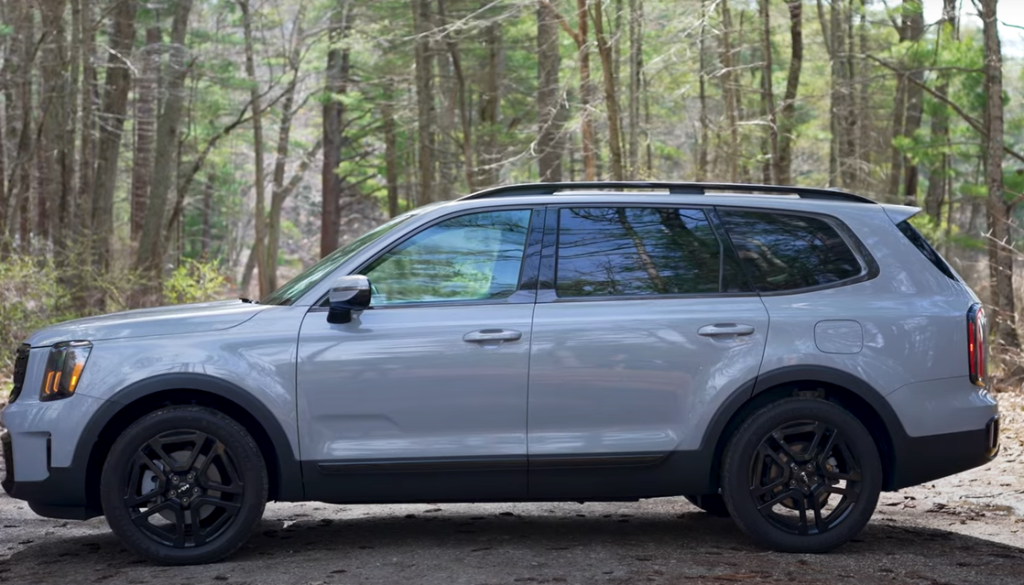
When considering an SUV, it’s important to note that they typically offer a higher ground clearance and a more robust suspension system, which enhances their capability to navigate challenging terrains. Additionally, SUVs often come with advanced four-wheel drive systems that further contribute to their off-road prowess.
On the other hand, crossovers are designed with a focus on urban usability and comfort, often featuring a smoother ride and better fuel economy. Their smaller size and nimble handling make them well-suited for maneuvering through city streets and parking in tight spaces.
In terms of interior design, SUVs are known for their spacious cabins and generous cargo space, making them suitable for families and outdoor enthusiasts who require ample room for gear and equipment. Crossovers, on the other hand, offer a more compact interior, catering to individuals and small families seeking a versatile vehicle for daily commuting and occasional weekend getaways.
In summary, the choice between an SUV and a crossover ultimately comes down to individual lifestyle and driving needs. Both vehicle types offer distinct advantages, and understanding these differences can help you make an informed decision based on your specific requirements [2].
5 Things to Consider When Buying an SUV
Handling and Performance
For many SUV buyers, the most important factor to consider is handling and performance. If you plan on using your vehicle for off-roading or towing in rugged terrain, it’s crucial to choose an SUV with a powerful engine and advanced four-wheel drive system to tackle challenging conditions with ease. On the other hand, if you prioritize city driving and fuel efficiency, a crossover might be more suitable, offering a versatile and compact option for urban commuting while maintaining a balance of comfort and efficiency.
Interior space and Cargo capacity
Another important aspect to consider when choosing an SUV is the interior space. It’s crucial to assess whether you require a vehicle with three rows of seating to cater to a large family, or if you prefer a more compact design for enhanced maneuverability. Take into account your daily requirements and select an SUV that aligns with your needs.
When evaluating cargo capacity, it’s important to consider the size and shape of the cargo area and whether it can accommodate the items you typically carry. Some SUVs offer the convenience of foldable seats for additional storage space, while others feature a higher load floor for easier loading and unloading. These details can significantly impact the practicality and functionality of the vehicle for your specific needs.
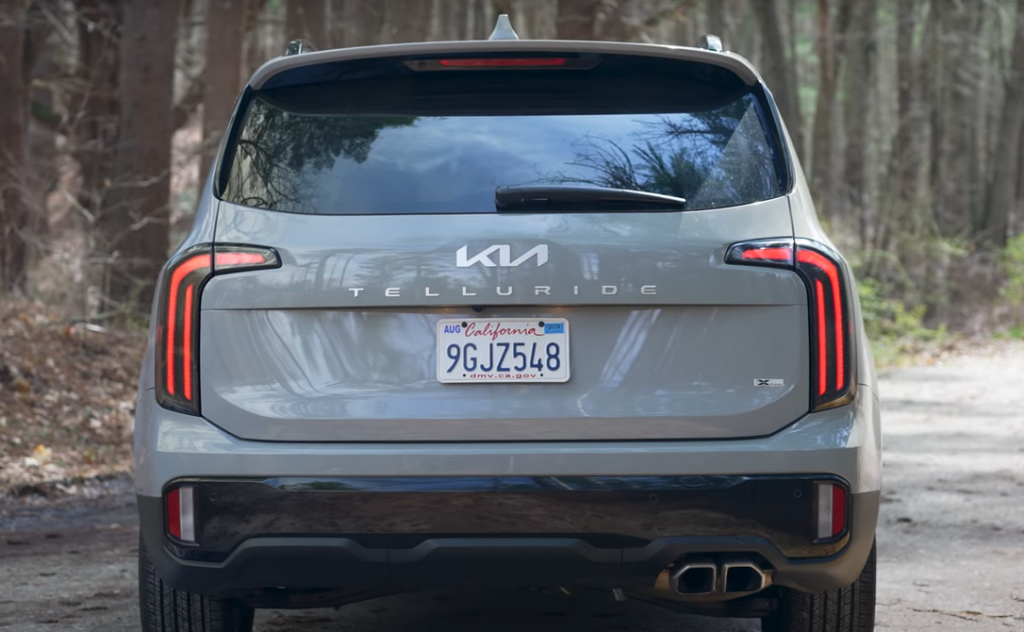
Safety Features
When it comes to safety, both SUVs and crossovers are equipped with a wide array of advanced features designed to protect passengers and enhance the overall driving experience. These encompass a variety of cutting-edge technologies such as blind-spot monitoring, lane-keeping assist, and automatic emergency braking systems. It’s crucial to thoroughly research the safety features of any vehicle under consideration and select one that prioritizes your peace of mind and safety on the road. This comprehensive approach to vehicle safety will ensure that you can confidently navigate any driving situation.
Fuel Efficiency
As previously mentioned, crossover vehicles, which combine features of traditional SUVs and passenger cars, are typically more fuel-efficient than traditional SUVs due to their smaller size and lighter weight. This improved fuel efficiency can result in long-term cost savings for drivers, making crossover vehicles an attractive option for those concerned about fuel consumption. When considering a purchase, it’s important to compare fuel efficiency ratings between different models to ensure you make an informed decision that aligns with your priorities and preferences.
Price and Maintenance Costs
Price and maintenance costs are important factors to consider when purchasing an SUV. Generally, larger SUVs with more advanced features tend to come at a higher price point than crossovers. Additionally, the cost of maintenance for SUVs can be higher due to their larger size and more complex components. It’s important to assess your budget and compare prices between different options to find a vehicle that offers the best value for your money. Additionally, researching maintenance costs and considering factors such as warranty coverage can help you plan for long-term ownership of your chosen vehicle.
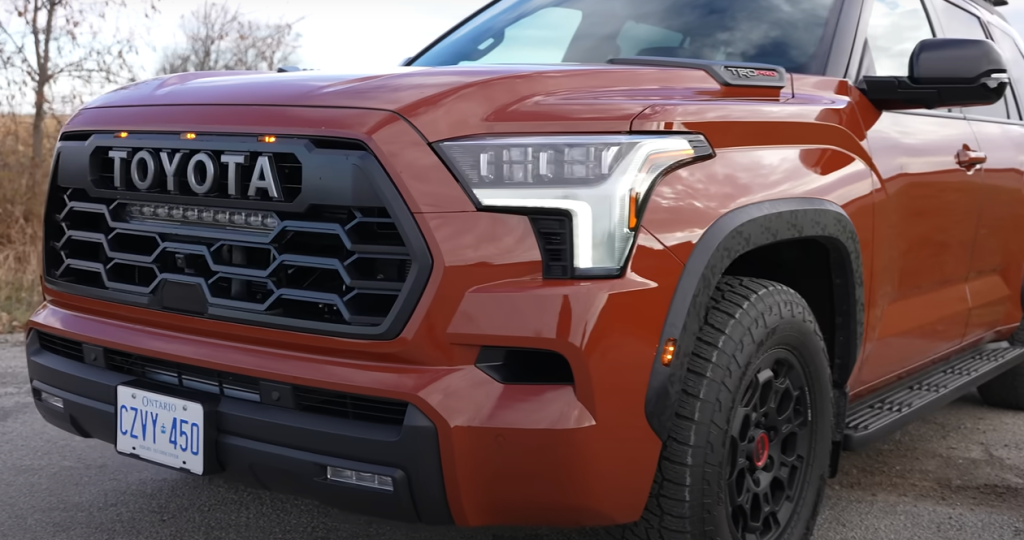
Running costs
In addition to fuel efficiency and maintenance costs, it’s essential to consider the overall running costs of an SUV. This includes factors such as insurance premiums, taxes, and potential depreciation. While crossovers may have a lower initial purchase price, larger SUVs often hold their value better over time. Additionally, it’s important to factor in potential costs of servicing and repairs, as well as the impact of fuel prices and any potential incentives for eco-friendly models. Ultimately, weighing all of these factors when making your decision ensures you choose a vehicle that not only aligns with your budget and financial goals but also suits your long-term needs and lifestyle [3].
Kia Telluride vs. Toyota Sequoia
Engine and Powertrain
The Kia Telluride comes standard with a 3.8-liter V6 engine that produces 291 horsepower, providing ample power for a smooth and responsive drive. In comparison, the Toyota Sequoia offers a robust 5.7-liter V8 engine with 381 horsepower, delivering impressive acceleration and towing capability. Both vehicles feature an 8-speed automatic transmission and offer optional all-wheel drive, ensuring versatility for various driving conditions. However, the larger engine of the Sequoia gives it a slight edge in terms of towing capacity, making it a compelling choice for those who frequently haul heavy loads or require extra power for demanding tasks.
Interior Space
The Kia Telluride offers seating for up to eight passengers, providing ample space for large families or group outings. On the other hand, the Toyota Sequoia can accommodate up to seven passengers, making it an ideal choice for slightly smaller groups. Both vehicles feature spacious and comfortable interiors with generous legroom and headspace for all occupants, ensuring a pleasant and enjoyable ride for everyone. Additionally, the Telluride’s second row of seats is designed to slide forward and backward, offering convenient access to the third row or extra cargo space as needed. Similarly, the Sequoia boasts a versatile seating configuration, featuring foldable third-row seats that can be collapsed to create even more cargo space, catering to a variety of passenger and cargo needs.
Exterior Design
The Kia Telluride showcases a modern and sleek design, characterized by smooth curves and bold accents that give it a distinct and stylish appearance. Its sophisticated exterior is complemented by thoughtful interior features, creating a luxurious and comfortable driving experience. In contrast, the Toyota Sequoia embodies a more rugged and traditional SUV design, featuring a boxy shape with ample ground clearance for off-roading capabilities. The interior is spacious and versatile, catering to the needs of adventurous drivers and families alike. Both vehicles offer impressive aesthetics and appeal to different preferences, providing a range of options for discerning buyers.
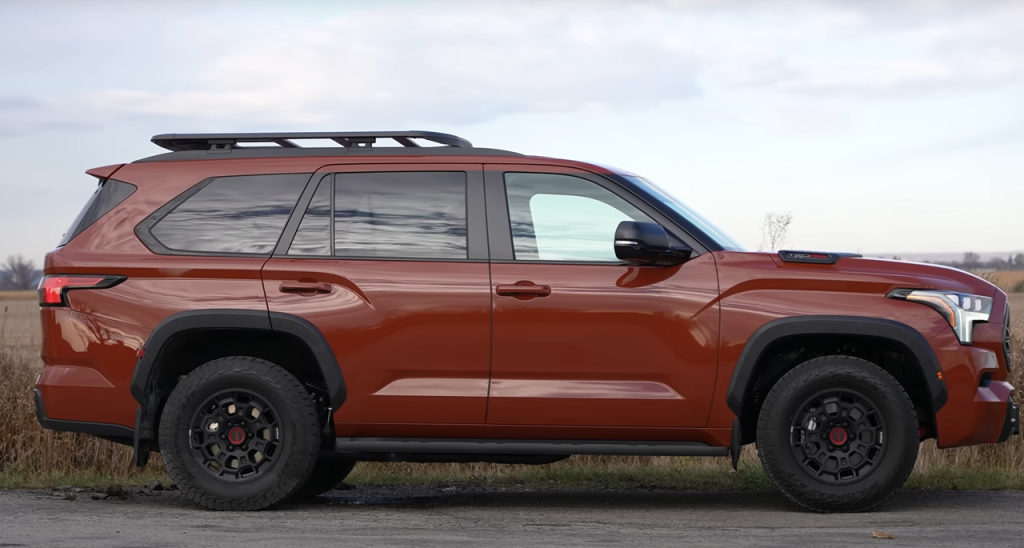
Safety features
When it comes to safety, both the Kia Telluride and Toyota Sequoia offer a range of advanced features designed to protect passengers and enhance overall driving experience. The Telluride comes standard with several driver assistance technologies, including blind-spot monitoring, lane-keeping assist, rear cross-traffic alert, and forward collision warning. The Sequoia also offers similar safety features, with the addition of adaptive cruise control and front and rear parking sensors. Both vehicles also come equipped with a comprehensive airbag system and advanced safety systems to keep passengers safe in the event of a collision.
Technology and Entertainment
The Kia Telluride features a user-friendly infotainment system with an 8-inch touchscreen display, Apple CarPlay, Android Auto, and Bluetooth connectivity. It also offers optional upgrades such as a 10.25-inch touchscreen display, premium audio system, and wireless phone charging. In comparison, the Toyota Sequoia offers a slightly smaller 7-inch touchscreen display with standard Apple CarPlay and Android Auto compatibility. It also offers optional upgrades such as a 9-inch touchscreen display, premium JBL audio system, and rear-seat entertainment system. Both vehicles offer a range of technology and entertainment features to enhance the driving experience for both drivers and passengers.
Pros & Cons
Overall, both the Kia Telluride and Toyota Sequoia offer impressive features and capabilities that make them attractive options for SUV buyers. However, there are some key differences to consider when choosing between the two:
Pros of the Kia Telluride:
- Enjoy a lower starting price, making it more accessible for budget-conscious buyers
- Benefit from better fuel efficiency, saving you money at the pump and reducing your environmental impact
- Revel in the modern design and luxurious interior, providing both style and comfort for your daily drives
- Easily navigate your journey with the user-friendly infotainment system, keeping you connected and entertained on the go
- Drive with confidence thanks to the standard driver assistance features, adding an extra layer of safety and convenience
Pros of the Toyota Sequoia:
- Equipped with a larger and more powerful V8 engine for increased performance and acceleration
- Boasts a higher towing capacity, making it ideal for hauling heavy loads with ease
- Features a spacious and versatile interior, providing ample room for passengers and cargo
- Designed with rugged off-roading capabilities to conquer challenging terrains
- Offers an available rear-seat entertainment system for enhanced passenger enjoyment during long journeys
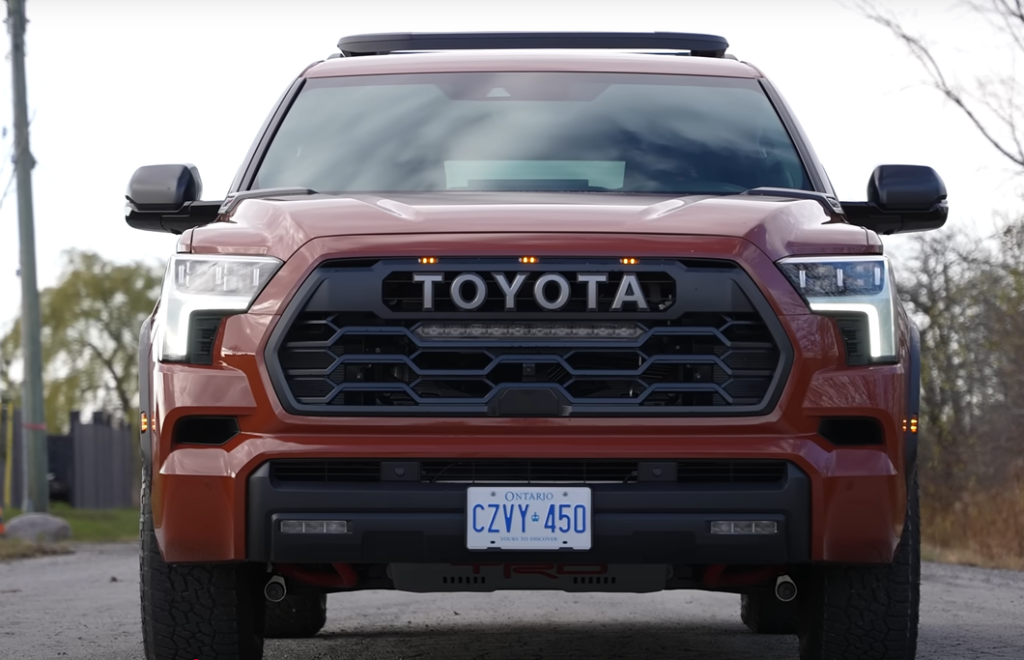
Cons of the Kia Telluride:
- The vehicle has limited engine options, with only one available engine for all trim levels, which may lead to a lack of variety for those seeking specific performance features tailored to their needs.
- It may not have enough power for those who need to tow or haul heavy loads frequently, potentially limiting its utility for certain users with demanding requirements.
- Furthermore, the seating capacity is limited to up to eight passengers, which may not suffice for larger families or groups, potentially posing a challenge for those needing to accommodate more individuals comfortably.
Cons of the Toyota Sequoia:
- The vehicle has a higher starting price, which makes it a less budget-friendly option for some consumers.
- Its lower fuel efficiency can lead to increased gas expenses and a greater environmental impact, which may be a concern for those looking for a more eco-friendly choice.
- Due to its larger size and heavier weight compared to the Telluride, it may not provide as smooth of a ride, particularly on rough or uneven terrain [4].
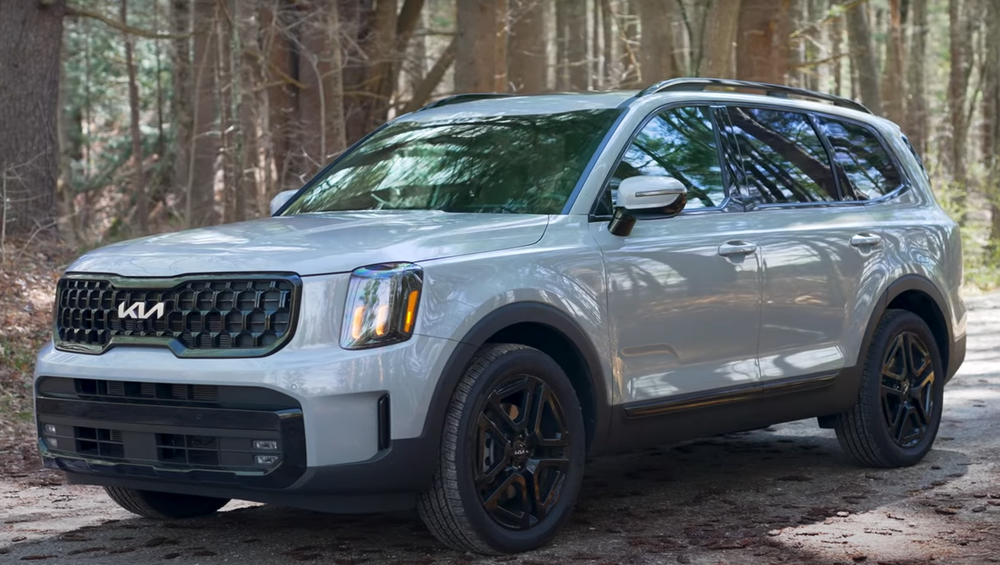
FAQ
How do I choose a good SUV?
Choosing a good SUV involves considering various factors, such as your budget, desired features and capabilities, driving needs and preferences, and safety ratings. It’s important to research different models, compare their specifications and prices, and test drive them to get a feel for how they handle on the road. Additionally, reading reviews and seeking recommendations from trusted sources can also help in making an informed decision. Ultimately, the best SUV for you will be one that meets your specific requirements and fits within your budget.
When researching different models, it’s beneficial to consider factors such as fuel efficiency, cargo space, technology features, and off-road capabilities if relevant to your driving needs. Furthermore, examining the warranty and available maintenance packages can provide insight into the long-term costs of ownership. By thoroughly evaluating these aspects and gathering comprehensive information, you can confidently select an SUV that aligns with your lifestyle and preferences.
Which is better: Kia Telluride or Toyota Sequoia?
The answer to this question ultimately depends on your personal priorities and needs. The Kia Telluride may be a better option for those looking for a more affordable, fuel-efficient, and modern SUV with advanced safety features and a comfortable interior. On the other hand, the Toyota Sequoia may be preferred by those seeking a more powerful engine, higher towing capacity, spacious interior, and rugged off-roading capabilities. It’s important to compare both vehicles’ pros and cons to determine which one aligns better with your preferences. Overall, both are excellent choices for SUV buyers and offer their own unique set of advantages. So, be sure to carefully consider your priorities and do thorough research before making a decision.
What are the common safety features found in both the Kia Telluride and Toyota Sequoia?
Both vehicles come equipped with standard advanced safety features such as blind-spot monitoring, lane-keeping assist, and automatic emergency braking. They also offer optional upgrades such as adaptive cruise control, front and rear parking sensors, and a comprehensive airbag system. These safety features work to prevent accidents and protect passengers in the event of a collision, making both the Kia Telluride and Toyota Sequoia solid choices for those looking for a safe SUV option.
What are the qualities of an SUV?
Some common qualities of SUVs include a higher ride height, providing better visibility and off-road capabilities. Their spacious interiors offer ample cargo room, along with versatile seating options. SUVs often boast more powerful engines, resulting in increased performance. Additionally, they come equipped with advanced technology features such as infotainment systems, driver assistance features, and entertainment options. Moreover, SUVs may offer all-wheel or four-wheel drive options, enhancing traction and handling in various driving conditions. This combination of features makes SUVs a popular choice for individuals and families seeking comfort, space, and performance in their vehicles.
What is special about SUVs?
SUVs offer a unique combination of features and capabilities that make them stand out from other vehicle types. They provide the spaciousness and comfort of a traditional family car while also offering ruggedness and versatility for off-road adventures or towing needs. Additionally, they often come equipped with advanced technology and safety features, making them a well-rounded choice for daily driving needs. SUVs also hold their value well, making them a practical long-term investment. Ultimately, what is special about SUVs is that they cater to a wide range of needs and preferences, making them a popular choice for many car buyers.
What car compares to the Toyota Sequoia?
Some cars that are comparable to the Toyota Sequoia include the Chevrolet Tahoe, Ford Expedition, and GMC Yukon. These full-size SUVs offer similar features and capabilities, such as powerful V8 engines, spacious interiors, and towing capacities. They also come at a relatively similar price point to the Sequoia. However, it’s important to note that each vehicle may have its own unique strengths and limitations, so it’s best to thoroughly research and compare different models before making a decision. Overall, the Toyota Sequoia remains a strong contender in the full-size SUV market.
Is Telluride really worth it?
The Kia Telluride has received high praise from critics and consumers alike, making it a popular choice in the competitive SUV market. Despite its limited engine options and seating capacity, the Telluride offers a comfortable and modern interior, advanced safety features, and impressive fuel efficiency for its class. It also comes at a more affordable price point compared to other full-size SUVs. Ultimately, whether the Telluride is worth it depends on your specific needs and preferences. If you prioritize a more budget-friendly option with advanced features, then the Kia Telluride may be a great choice for you. However, if you require higher towing capacity and a more powerful engine, the Toyota Sequoia or similar models may be better suited for your needs.
Is Telluride considered a luxury SUV?
While the Kia Telluride does offer several luxury features such as premium materials, advanced technology, and a comfortable ride, it is not typically classified as a luxury SUV. Luxury SUVs are usually defined by their higher price points, exclusive brand names, and more luxurious amenities such as high-end leather seating and advanced entertainment systems. The Telluride may be considered a more affordable alternative to luxury SUVs, offering similar features and capabilities at a lower cost. Ultimately, the designation of “luxury” is subjective and may vary depending on personal opinions and preferences.
Why Telluride is the best?
The Kia Telluride has been recognized as one of the best SUVs on the market due to its winning combination of features, performance, and value. It has won numerous awards from industry experts and consumers for its spacious interior, advanced safety technology, comfortable ride quality, and overall value for money. Additionally, the Telluride offers a modern and sleek design that stands out among its competitors.
Overall, the Telluride is considered the best option for those looking for a well-rounded and affordable SUV that offers everything from advanced safety features to impressive fuel efficiency. In conclusion, whether you choose the Kia Telluride or Toyota Sequoia ultimately depends on your individual needs and preferences as both vehicles offer unique advantages.
How to choose between Kia Telluride and Toyota Sequoia?
When deciding between the Kia Telluride and Toyota Sequoia, consider your priorities and needs. If you prioritize advanced safety features, fuel efficiency, and a more budget-friendly option, then the Telluride may be the better choice for you. However, if you require higher towing capacity, a more powerful engine, and more spacious seating for a larger family or group, then the Sequoia may be a better fit. It’s also important to test drive both vehicles and compare their features and capabilities to determine which one suits your lifestyle and preferences best.
Ultimately, both the Kia Telluride and Toyota Sequoia are solid choices in the SUV market, so make sure to thoroughly research and consider all factors before making a decision. So, take into account your individual needs and preferences to make the best choice for you! Keep in mind that both the Telluride and Sequoia offer unique qualities and capabilities that cater to different lifestyles, so choose wisely based on what matters most to you.
Conclusion Paragraph
Overall, Kia Telluride and Toyota Sequoia are the cars that offer a great combination of features and capabilities, making them popular choices in the SUV market. Both vehicles provide spaciousness, comfort, advanced technology, and performance for various driving needs and conditions. However, they also have their unique strengths and limitations that cater to different lifestyles and preferences. Whether you choose the Kia Telluride or Toyota Sequoia ultimately depends on your individual needs and priorities, so make sure to thoroughly research and compare both options before making a decision. Whatever you choose, both vehicles are reputable and reliable choices that will provide value and satisfaction for your driving needs.
Kia Telluride vs. Toyota Grand Highlander vs. Honda Pilot vs. VW Atlas | 3-Row SUV Comparison Test
References
- https://www.cazoo.co.uk/the-view/buying/what-is-an-suv/
- https://www.mitsubishicars.com/crossover-vs-suv-difference
- https://www.motorrange.co.uk/blog/5-things-to-consider-when-buying-an-suv
- https://www.iseecars.com/compare/kia-telluride-vs-toyota-sequoia

